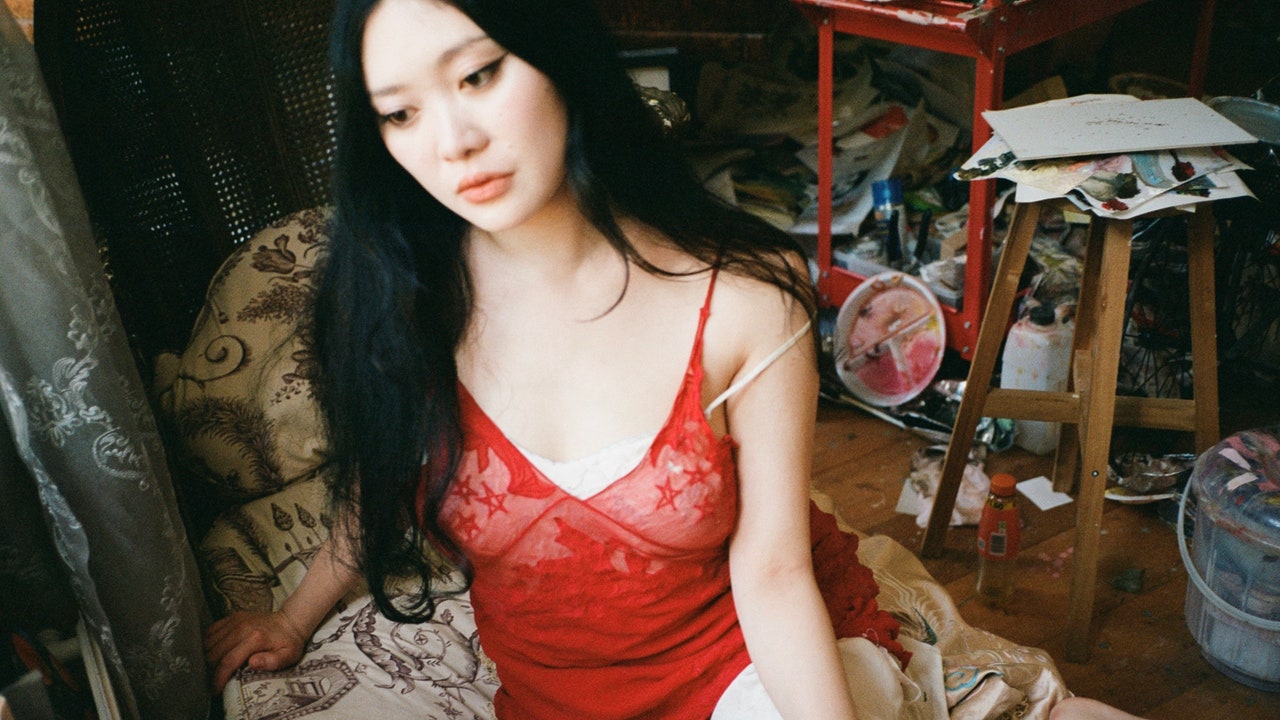“It’s as if one might plunge into them,” remarks Faye Wei Wei, the artist, discussing her artworks while on a call from London. “I have a fondness for swimming frequently in the lido, and often contemplate how the pool resembles a mirrored exterior as one swims. With each stroke of your fingers, a reflection of yourself appears, creating a sense of duplicity. It almost suggests the presence of an alternate realm that one could inhabit and just step into.”
This romantic interpretation of a simple act is a recurring theme across her creations. She once painted two interwoven flowers upon a literal portal—a lover’s door—to safeguard him and serve as a reminder of their love. “While it may seem a bit whimsical, there’s an impression of the traces, every mark, and an emotion that you are a part of the painting,” says Wei Wei about the expression of her inner self. “You can sense my existence there. I perceive the canvas and the painting’s surface as infinite.”
This concept is vividly shown in her first monograph Portals, now released by Éditions Lutanie, covering almost 14 years of the British artist’s creations. The volume starts with a straightforward dedication to Wei Wei’s mother, Autumn Cloud, in Chinese, alongside a figure sketch titled, I Tangled Your Legs in Mine. We Were a Knot in the Grain of the World. “This initial piece is one of my most cherished creations, yet it’s merely me and my former girlfriend entwined,” she elaborates. “It’s a profoundly tender sketch, crafted by using a pencil eraser to create a dreamlike quality and a cocooning of the two lovers.”
Hailing from South London, Wei Wei spent much of her youth either drawn to sketching at the table while her siblings engaged in video games or gathering blossoms—“many lovely weeds,” she notes—at the nearby park. She recalls collecting fallen leaves with her art class around age six, which sparked an early fascination with still life. “The crevices in leaves captivated me,” she comments. “It seemed instinctual. I can’t quite explain it, but it invigorates me—like an adrenaline surge in my right hand—and it deeply touches me.”
